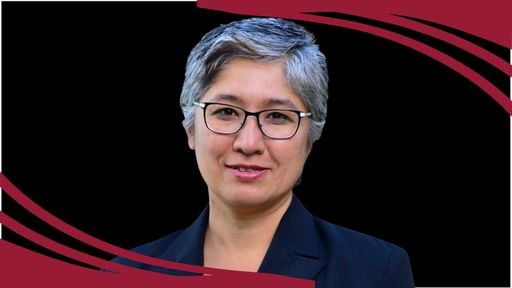New research from faculty at Guilford College and the Philippine Heritage Council of Manitoba in Canada revealed that health-care providers exhibit judgment, implicit bias, and poor management of chronic illnesses, often leading to expressions of power over patients and low levels of trust on the part of Filipino aging patients and caregivers. Participants’ testimonies stress the need for health-care providers to seek pathways for kapwa and peacebuilding to address racial/ethnic health-care disparities, poor health service utilization, and poor health outcomes.

The Filipino concept of kapwa, an Indigenous philosophy, embodies peace values such as respect, mutual help, compassion, sensitivity, and community, and calls people to navigate relationships collectively rather than alone. While kapwa acknowledges personal identities and differences, it encourages a sense of oneness, the unity of the self and others. Kapwa can be conceptualized as an Indigenous form of peacebuilding as well as a conflict transformation approach that can be used in health-care settings to achieve oneness and racial justice. This research suggests the use of antiracist education to reduce oppression, a key cause of adverse health-based inequities affecting racial/ethnic minorities in Canada.
Zulfiya Tursunova, Associate Professor and Chair of Guilford's Peace and Conflict Studies Department (pictured at right), says there is longstanding evidence that immigrant caregivers’ and patients’ needs have not been met. Immigrant women and men, regardless of gender, race, class, ethnicity, and country of origin, experience barriers in accessing the Canadian health-care system. Many find themselves taking the lead role in negotiating cross-cultural care for their families, who have specific emotional and sociocultural needs in how they receive and provide care to their children, parents, or relatives.
Immigrant women frequently experience a lack of support while having heavy obligations as caregivers for ill family members. They often have a low income and/or jobs with limited flexibility and experience a lack of social support, neighborhood cohesion, and a sense of community. They may be reluctant to use formal services because of the lack of cultural sensitivity shown by care providers and the barriers related to unmet language needs, transportation issues, racism, social exclusion, accent-based discrimination, and lack of knowledge about the Canadian health-care system. Some immigrant caregivers and patients experience poor relationships with health-care providers, who may not communicate in a cross-cultural manner or provide adequate care.
Immigrant women often experience caregiving conflicts with work and family expectations, resulting in stress, burnout, guilt, and frustration as they feel overwhelmed by the number of tasks to perform. Caregivers may have chronic illnesses themselves, such as cancer, kidney issues, arthritis, headaches, and dementia. Moreover, as immigrant caregivers experience resettlement, they frequently must deal with isolation and loneliness, depression, family conflict, economic dependence, and coping. While a strong sense of responsibility prevails in providing care, structural issues, such as disadvantaged access to housing, employment, transportation, or health care services, often cause distress for immigrant caregivers looking after their family members.
This study underscores how structural racism in the labor market and residential segregation is intertwined with poverty, racial/ethnic inequities, and health disparities. Living in low-income neighborhoods with high rates of poverty, a lack of employment and inadequate health care often lead to chronic illness. Furthermore, these racial/ethnic disparities are deepened by racial/ethnic-based discrimination when patients receive health care, the high rate of inaccurate assessment by health-care providers that ignores and misdiagnoses patients’ symptoms, and being belittled or talked down. Empirical evidence shows a power struggle between what caregivers and patients desired for competent care and what was actually offered to them by health-care providers.
Filipino caregivers and patients called for racial justice, equity, and inclusion, and expressed their need for health-care providers to overcome racism and attitudinal barriers, improve their communication, and engage in more partner-based decision-making when helping immigrant caregivers and patients to receive quality care and health outcomes. Furthermore, chronic illness and symptom assessment, pain prevention, treatment, management, and overall provision of care is a racial-justice issue that needs to be addressed to ensure quality care and positive health outcomes. Caregivers and patients observed that healthcare providers exhibited a lack of professional competence and assessment skills in addressing immigrant caregivers’ and patients’ care needs.
This research brings forward the idea that kapwa, an Indigenous community-based peacebuilding and conflict transformation approach, can be used in health-care settings to achieve oneness and racial justice. Filipino caregivers’ and patients’ perspectives on the quality of care they received reflected a complex interplay between their meaning of health and the understanding of professionalism, trust, sensitivity, and communication that empowers them. Indigenous philosophy can shift health-care providers’ practices of oppression and work toward testimonies that express values of respect, mutual help, compassion, kinship obligation, social sensitivity, and community. This study’s findings demonstrate the importance of basic and continuing education on anti-racism, diversity, and equity. Health-care providers must optimize the skilled provision of quality care to immigrant caregivers and patients to achieve health through peace.
For more information, download and read the article with footnotes and end notes at this link.

